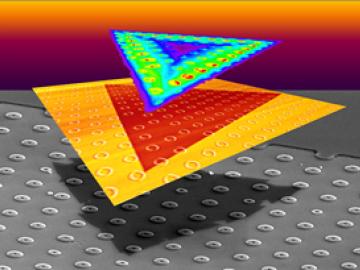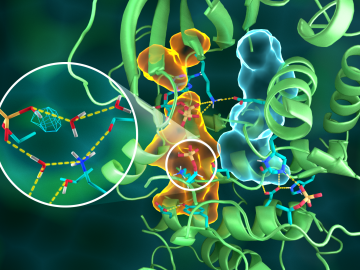
Filter News
Area of Research
News Topics
- (-) Advanced Reactors (1)
- (-) Biomedical (6)
- (-) Exascale Computing (1)
- (-) Mathematics (1)
- (-) Quantum Science (6)
- 3-D Printing/Advanced Manufacturing (8)
- Artificial Intelligence (3)
- Big Data (2)
- Bioenergy (8)
- Chemical Sciences (2)
- Clean Water (1)
- Climate Change (1)
- Composites (1)
- Computer Science (14)
- Coronavirus (5)
- Critical Materials (2)
- Cybersecurity (2)
- Energy Storage (9)
- Environment (10)
- Isotopes (2)
- Machine Learning (4)
- Materials (1)
- Materials Science (31)
- Microscopy (4)
- Molten Salt (1)
- Nanotechnology (14)
- National Security (1)
- Neutron Science (30)
- Nuclear Energy (6)
- Physics (9)
- Polymers (3)
- Security (1)
- Summit (5)
- Sustainable Energy (7)
- Transformational Challenge Reactor (2)
- Transportation (5)
Media Contacts

Scientists at have experimentally demonstrated a novel cryogenic, or low temperature, memory cell circuit design based on coupled arrays of Josephson junctions, a technology that may be faster and more energy efficient than existing memory devices.

A team led by scientists at the Department of Energy’s Oak Ridge National Laboratory explored how atomically thin two-dimensional (2D) crystals can grow over 3D objects and how the curvature of those objects can stretch and strain the

OAK RIDGE, Tenn., May 7, 2019—Energy Secretary Rick Perry, Congressman Chuck Fleischmann and lab officials today broke ground on a multipurpose research facility that will provide state-of-the-art laboratory space

OAK RIDGE, Tenn., March 20, 2019—Direct observations of the structure and catalytic mechanism of a prototypical kinase enzyme—protein kinase A or PKA—will provide researchers and drug developers with significantly enhanced abilities to understand and treat fatal diseases and neurological disorders such as cancer, diabetes, and cystic fibrosis.


